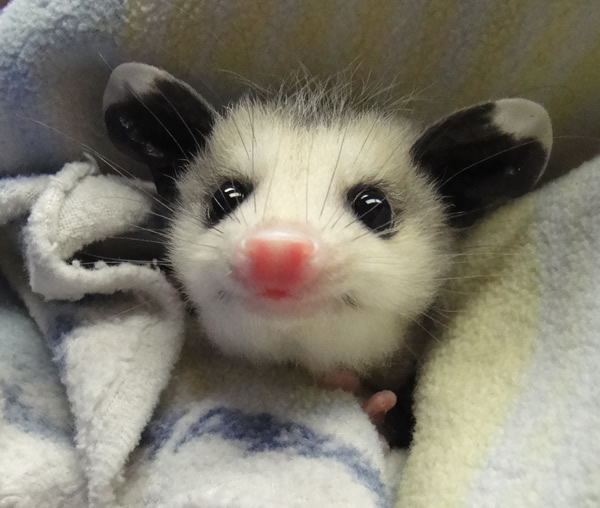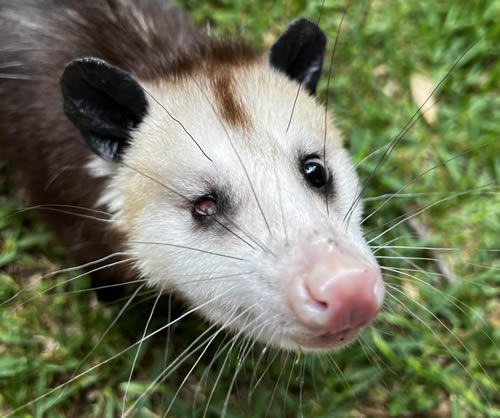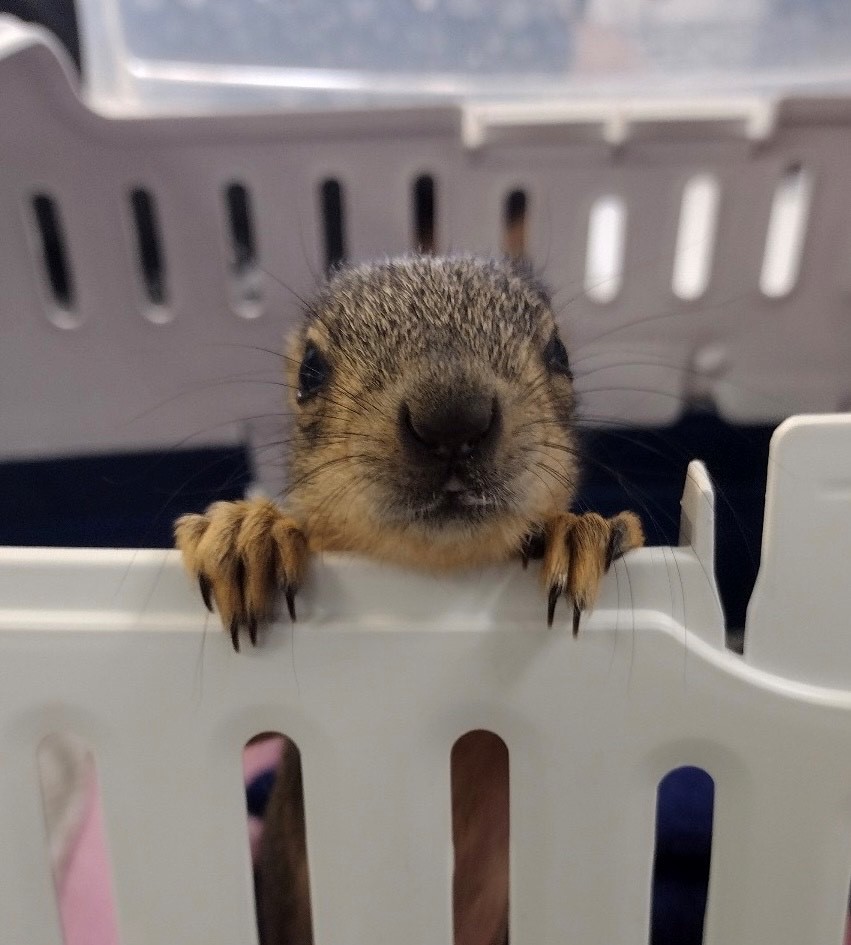Have you found a BABY opossum?
Baby Found Without Mother:
Baby opossums that are found without their mother should be brought to a wildlife center as soon as possible. Any opossum smaller than seven inches (not including the tail) is a baby that is too young to survive on its own. Please search the area to ensure that you have retrieved all the babies. Please call us at 713-468-8972 as soon as possible. If we are closed, please leave a voicemail and follow the Temporary Care Instructions below.
Baby Found With Dead Mother:
If you have found a baby next to a dead mother, please search the area for other living siblings in addition to searching in the mother’s pouch. If babies are still attached to the nipples and are not easily coming off, please do not try to remove them as this can accidentally injure them. Call us as soon as possible at 713-468-8972. If we are closed, please leave a voicemail and follow the Temporary Care Instructions below.
Have you found an INJURED or ILL opossum?
If you find a opossum of any age that is:
- Caught by a cat or dog
- Visibly injured
- Unable to walk
- Limping or dragging a limb
- Lethargic
- Covered in ants or flies
Please contact us at 713-468-8972 as soon as possible to determine further steps. If we are closed, leave a voicemail and follow the Temporary Care Instructions below.
Temporary Care Instructions for ALL Animals:
- Houston Humane Society Wildlife Center (HHS Wildlife Center) recommends that you wear gloves or use a cloth barrier when handling wildlife.
- Prepare an appropriate-sized cardboard box by poking air holes in the top and placing a soft cloth (T-Shirt, towel, paper towels) in the bottom. DO NOT put the animal into a plastic bag.
- Place the animal into the prepared box and tape the box shut. For injured adults, place the box on its side next to the animal and use a stick, broom, or rolled-up newspaper to gently push the animal into the box.
- Do not give the animal any food or liquids. Feeding an animal an incorrect diet can result in injury or death. In addition, rescued animals can get wet from liquids and become hypothermic and/or spill food on their fur/feathers, potentially causing damage.
- Keep the animal in a warm, dark, quiet place. Darkness makes the animal feel more secure. If the animal is a baby, the box can be placed half on and half off a heating pad set on low. If the animal gets too warm it will move to the other end of the box. Do not place adult animals on a heating pad.
- Leave the animal alone. Human noise, touch, and eye contact are very stressful to wild animals and can result in shock or even death. This is especially important in the case of injured or adult animals.
- If an animal has been caught by a cat or dog, please call HHS Wildlife Center immediately at 713-468-8972. Even if wounds are not visible, the animal needs medical intervention as soon as possible.
- Keep children and pets away. BE CAREFUL! An animal that is hurt or frightened may bite.
- Call HHS Wildlife Center at 713-468-8972 as soon as possible!
General Information about Virginia Opossums in the Houston Area
In Houston, we typically see opossum babies as early as January continuing through to November, with most babies born between the months of February and June. A female opossum may have one to three litters per year that contain 16-20 babies, although less than half will reach adulthood. The lifespan of the Virginia opossum is about two to four years.
Opossums are prevalent throughout Houston, in neighborhoods as well as more natural areas. Many people think of opossums as pests or threatening, but they are actually shy, harmless animals that are beneficial to have around. Opossums do not dig in yards or cause damage to homes. They are known as “nature’s pest control” as they eat things that people typically do not want in their yard such as roaches, ticks, snails, rats, and mice. Opossums are solitary, nomadic animals that do not establish a permanent territory. It is best not to feed them since they are often severely injured by dogs when passing through a back yard, and feeding them will attract them to potentially dangerous areas for them.


